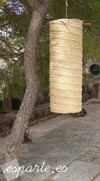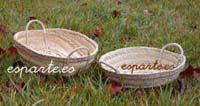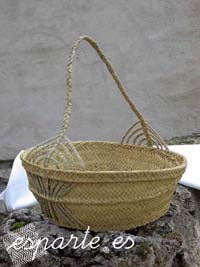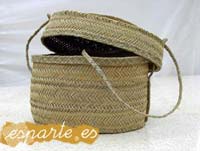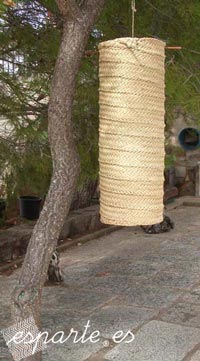It all started a long time ago from my admiration for an unknown and intriguing world. There have been many efforts, many meetings, searches and relations with "far away worlds" that are still maintaining in the present.
"esparte" has been there and pretends in some way to connect tradition with current daily life. Attempts, as far as possible to approach current aesthetic dimensions to everyday household tools and baskets created and used for years. To them certainly it was passing unperceived, but in reality we could speak about an alive artisan labor. We hope this memory of our ancestors is warm, allowing us to gain understanding of their life.
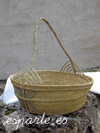
"esparte" was created with the purpose of bringing to mind a myriad of chores and memories that have been left hanging silent in time. The person who enters to "esparte " is slowly submerging in customs, environments, traditions and forgotten situations, however, beat in the personal and collective unconscious. There are shapes, smells, colors, textures, even words what suggest and take us to people, works, efforts, lives... Esparto sandals, baskets, breadbasket, rugs, "meloneros" (piece to keep melons ok until Christmas time), "bombonas" (carafes), cheese mold, panniers, "baleos", table mat, "jarpiles", "costales" (big baskets), "capazas", "marguales" ("soplillos"), "cofines", "tizneros, "cachuleros", barjas... are icons of a remote life almost impossible to understand.

Another objective of "esparte's" area is to awaken the interest for craftsmanship. Esparto weaving is a "healthy art". And once the person is seduced we walk from passivity to activity we will stop being consumers to become producers, we produce our utensils. They no longer come from afar but up close, from our own hands. The pace of weaving returns us to the rhythm of life; slows us down and makes us increasingly being present in an endless rhythm of goings and comings guided by our hands, stroking the labour. Being present is a guarantee of creation because, if we listen to the rhythm of the work itself (as the master Antonio "the Capel" said), the work always speaks to us; It is good to listen...
